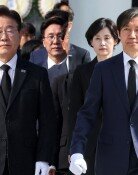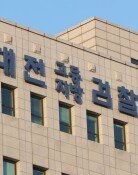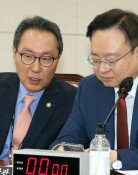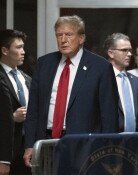Weak Dollar Could Lead to Dollar Sell-Off
Weak Dollar Could Lead to Dollar Sell-Off
Posted November. 21, 2007 03:08,
The Chinese government has indicated that it will cut down the size of its dollar reserve while increasing that of other foreign currencies such as the euro.
The Chinese leaderships recent announcement came in the midst of other countries taking the same step. Yet given that China has the worlds largest dollar reserve, the reduction in the size of its dollar reserve could accelerate the downward pressure on the value of dollar. That, in turn, will have a negative impact on the Korean economy.
Chinese Premier Wen Jiabao, currently visiting Singapore for the ASEAN + 3 (Korea, China and Japan) summit, said in an address to Singaporean businessmen on November 19, The weak dollar has left China in a difficult position to maintain the value of its foreign currency reserve.
The premier added, If the size of a foreign currency reserve is not big, there is no problem. But with the huge foreign reserve as China now has, how to effectively manage it becomes a critical problem.
A significant number of experts observe that this remark indicates that China might no longer adhere to its current dollar-based foreign currency policy, and sell dollars to buy more euro and yen.
At the end of September this year Chinas dollar reserve reached 1.4336 trillion dollars. In Chinas foreign reserve, the dollar comprises 75%, the euro 20%, and other currencies including yen 5%. If China officially announces its intention to ditch its dollar-based foreign currency policy, a chain reaction in the global economy because of a weaker dollar would be inevitable.
A weaker dollar could lead to an outflow of foreign capital from the U.S. such as yen carry trade capital, resulting in the aggravation of the U.S. credit crisis recently caused by subprime mortgage financial problems.
As the Korean economy is very closely tied to that of the U.S., the U.S. economic recession based on the weak dollar is likely to affect the Korean economy in a negative way with a stronger won, making its exports less competitive. Koreas economic growth could slow down and its financial market would also have to bear uncertainty.
Joseph E. Stiglitz, a Nobel Prize winner and Columbia University economics professor, recently said, A move to exclude dollars from foreign reserves will accelerate the devaluation of the dollar.
higgledy@donga.com orionha@donga.com
Headline News
- Israel prepares for retaliation against Iran
- Samsung reclaims top spot, surpassing Apple in smartphone market
- 77% of Koreans in 20s and 30s are 'Kangaroo Tribe' due to job crisis
- KBO referees embroiled in controversy over ABS decision concealment
- Inflation, oil price surge put double shock on global economy







